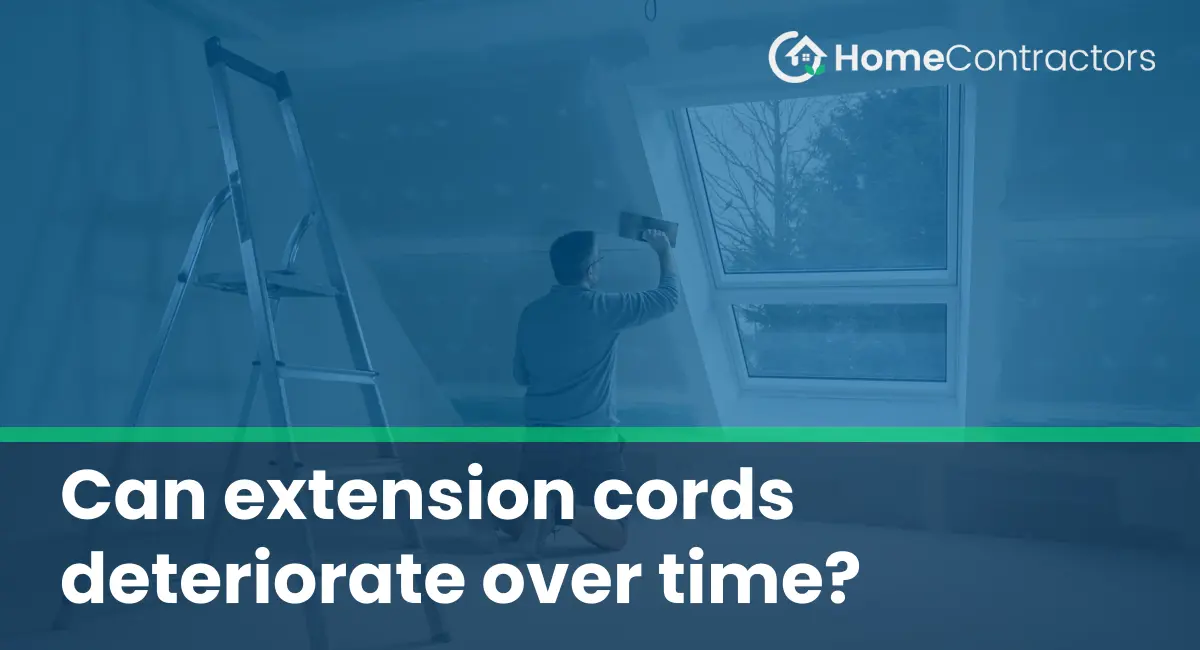Extension cords are a handy tool that many of us use in our homes or offices. They allow us to conveniently plug in multiple devices in areas where outlets may be scarce. However, just like any electrical equipment, it is essential to ensure that they are in good condition and are not posing a safety risk. In this article, we will discuss whether extension cords can deteriorate over time and the potential hazards associated with using damaged cords.
Understanding the Lifespan of Extension Cords:
Extension cords, like all electrical equipment, have a lifespan. While they can provide many years of reliable service, they are not meant to last indefinitely. The lifespan of an extension cord depends on several factors, including its quality, usage, and maintenance. Cheaper cords might have a shorter lifespan compared to high-quality ones. Additionally, heavy usage of extension cords, prolonged exposure to harsh conditions, and inadequate maintenance can also contribute to their deterioration.
Signs of Deterioration:
It is crucial to be aware of the signs that indicate an extension cord may be deteriorating. Regular inspection of cords can prevent accidents, fires, or electrical shock. Here are some signs to look out for:
1. Frayed or Damaged Insulation:
Examine the insulation along the entire length of the cord. If you notice any cracks, splits, or frayed sections, it is a strong indication of deterioration. Damaged insulation can expose the conductive wires inside, increasing the risk of electrical shocks and fires.
2. Loose or Worn Out Plugs:
Check the plugs on both ends of the extension cord. If they are loose or damaged, they may not provide a proper connection, leading to power losses, overheating, or potential electrical hazards.
3. Overheating:
When in use, an extension cord may warm up slightly, which is normal. However, if you notice that the cord is excessively hot or emitting a burning smell, it is a clear sign of deterioration. Overheating is often caused by a degradation of internal connections or insulation, which can lead to short circuits or fires.
Hazards of Using Deteriorated Extension Cords:
Using extension cords that have deteriorated over time can expose you to a range of hazards, including:
1. Electrical Shock:
Damaged insulation or loose plugs can lead to exposed wires, increasing the risk of electrical shocks. These shocks can range from mild discomfort to severe injury or even fatality, depending on the level of contact and the electrical current involved.
2. Fire Hazards:
Deteriorated extension cords are a significant fire hazard. Exposed wires, overheating, or sparks caused by damaged plugs can easily ignite surrounding materials like curtains, rugs, or furniture, leading to a potentially devastating fire.
3. Equipment Damage:
Faulty extension cords can also damage the devices they are connected to. Instabilities in the electrical connection can result in power surges, damaging sensitive electronics, appliances, or other electrical equipment.
Proper Usage and Maintenance:
To ensure the safe and efficient use of extension cords, it is important to follow some guidelines:
1. Invest in High-Quality Cords:
Starting with a good quality extension cord will increase its lifespan and minimize the risk of deterioration.
2. Avoid Overloading:
Extension cords have a maximum amperage rating, indicated on the cord or its packaging. Avoid exceeding this rating to prevent overheating and potential damage to the cord and connected devices.
3. Regular Inspection:
Inspect extension cords periodically for signs of wear and tear, especially at both ends and along its length. Replace any damaged cords immediately.
4. Proper Storage:
Avoid coiling extension cords tightly or overlapping them when storing. Such practices can cause damage to the cords over time. Instead, use a cord reel or loop the cord loosely to prevent kinks and tangles.
Extension cords are a convenient solution for powering multiple devices from a single outlet. However, they do have a limited lifespan and can deteriorate over time. It is crucial to regularly inspect extension cords for signs of damage, such as frayed insulation or loose plugs. Using deteriorated cords can lead to electrical shocks, fires, or equipment damage. By following proper usage and maintenance practices, we can ensure that extension cords remain a safe and reliable tool for our electrical needs.
